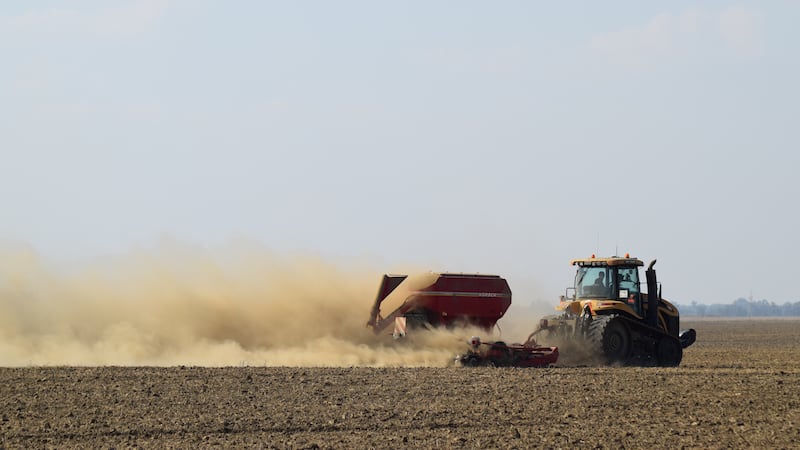Fertilizer experts say some Canadian and Mexican imports may be exempt from tariffs
The Fertilizer Institute says an executive order could help with dollar impacts of imports in the Western Hemisphere

ST. LOUIS, Mo. (First Alert 4) - For weeks, concerns about tariff impacts have been discussed by farmers and industry experts focused on fertilizer -- a key piece of many agricultural operations. First Alert 4 has been following the impacts of the tariff concerns and real world impacts since tariffs were first discussed.
Under an executive order, The Fertile Institute say fertilizers meeting specific status requirements will face no duty under the current tariff round, others will only meet a tariff of 10%.
BACKGROUND
First Alert 4 first dug into the issues around tariffs and fertilizer back in February. At the time, advocates were working with Congress and the White House to address the concerns and potential impacts.
The president of TFI, Corey Rosenbusch, tells First Alert 4 that many of the most important pieces of fertilizer production are naturally found in Canada.
The Institute says that ensuring stable and affordable access to fertilizers is critical to keep U.S. agriculture competitive, keeping rural economies strong and helping to keep groceries affordable.
“The U.S. relies on imports for over 95% of its potash fertilizer needs, with nearly 90% of that coming from Canada,” TFI says. “Canada also supplies U.S. growers with over 8% of our nitrogen fertilizer needs, ing for 25% of U.S. nitrogen fertilizer imports.”
The Canadian Government says that as of 2023, almost half of all their produced potash was exported to the United States.
THE LATEST DEVELOPMENTS
The Fertilizer Institute, an industry group working in Washington on fertilizer issues, recently praised the Trump istration for taking action on the fertilizer tariff concerns in the form of an Executive Order focused specifically on imports between the U.S., Canada and Mexico.
TFI says the order focuses on Canadian and Mexican imports of fertilizers meeting USMCA preference status. Under the order, TFI says these imports “will be subject to no duty while this round of tariffs remains in effect.”
USMCA stands for The United States-Mexico-Canada Agreement (USMCA).
One of the pieces highlighted by TFI is potash -- which under the order -- any potash imports that do not meet USMCA preference status “will be subject to a reduced import tariff of 10 percent.”
In a statement, the President of TFI, Corey Rosenbusch, said the planting season is near -- and “President’s recognition of the critical nature of fertilizers will ensure growers have access to the vital crop nutrients that make possible bountiful harvests and profitable grower operations.”
“We look forward to continuing our work with the istration to make the U.S. fertilizer industry and American agriculture the most productive in the world,” TFI said in a statement.
This story is a product of the Mississippi River Basin Ag & Water Desk, an independent reporting network based at the University of Missouri in partnership with Report for America, with major funding from the Walton Family Foundation. The Nature Conservancy and American Rivers also receive Walton funding.
Copyright 2025 KMOV. All rights reserved.











![[Insert Caption Here]](https://gray-kmov-prod.gtv-cdn.com/resizer/v2/JA6563POYVBLLK7VJBLDIMBZQY.jpeg?auth=e3bd3bb8728979ec3fcde73feaaf628b9e20b1be20c13edc8a5f4436501eb89d&width=800&height=450&smart=true)




